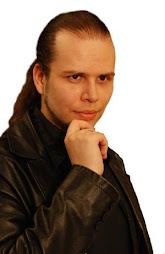Epistemology is in philosophy the study of how we know things, often contrasted with ontology, the study of what is. There are many strange ideas about how to attain certain knowledge and some more realistic ideas about how to attain provisional knowledge. (The kind of knowledge that might be replaced by better knowledge in the future and leading to the question if the replaced knowledge really was knowledge to begin with.)
Everyday epistemology is something slightly different. Learning how to evaluate truth-claims is all very good but it is just impossible for one human being to build her entire world-view on tested claims. Each and every one of us, no matter how sceptical we want to be, accept things unchallenged out of necessity. With everyday epistemology I try to take a look at the limits of the examined life from a different perspective than what is traditionally done in philosophy.
In many discussions about epistemology the focus is how to find the truth about one thing or in one situation. In the real world we piece together billions and billions of impressions and data to form a picture of how the world is. Even if we had a perfect method of how to find the truth of each piece of data we would not have time to implement the method for each and every bit. When you want to study how a person knows how the world is, how her picture of reality is attained, it is a fact that mostly the knowledge, or information is perhaps a better word, is uncritically accepted.
(I use the word ‘information’ about bits and pieces of data without concern about if it is true or false, or even if it makes any sense.)
But very few accept everything they hear or see. At certain times people are more likely to test the claims that they encounter at other times they simply dismiss it. When people try to test new information we reach the field of classical epistemology, we ask ourselves if it is true and how can we find out if it is true. But before this we have the question of what makes people want to test new information and also when they should question not only new but old information.
The urge to test new information will arise then the information contradicts earlier ideas considered to be knowledge and it cannot be simply dismissed. The urge should arise than the information becomes, or is, an important part of ones world-view.
Factoids (mainly in Swedish) are interesting; they are small pieces of information that are not true, or at least unsubstantiated, but they are well known to be true or at least well know. Everyone knows Galileo’s famous utterance at the end of his trial because it is a good story. It is regarded as a true fact although it is not. For biographers of Galileo the story is important so they go through the trouble of checking the sources and find that they have to remove that piece of information from their knowledge of the world. Few people have that kind of a special interest in Galileo and the story will likely not contradict their world-view and thus simply becomes accepted as a small part of what they know. Factoids are not a perfect example of how information that is not confrontational and unimportant is easily accepted, because factoids are interesting and entertaining enough to be spread unlike much other information. Still they tell us that much of what a person know is uncertain because everyday we accepted information uncritically.
So the first “law” of everyday epistemology, the study of how people attain knowledge about the world in real life, is that everything is accepted as true.
The second “law” is that if new information contradicts what is all ready considered true there are three ways to handle the new information, testing the truth claim, dismissing the information without testing, or have a world-view that allow for contradictions.
It is out of necessity that we do not always test all the claims; it is out of necessity that we readily accept or dismiss information that agree or disagree with what we think we know. What is in my opinion a problem is that many appear to think that what is done out of necessity is also sufficient. Even when a set of believes have a prominent place in a persons world-view they think that accepting or dismissing information without testing is enough.
Perhaps the study of how people in fact form their world-view is more psychology and sociology than philosophy. I still think it is of huge importance to understand this part of epistemology if one wants people to live an examined life in the real world. Socrates said “the unexamined life is not worth living”.
This blog is about science, pseudoscience, manipulation, magic, and outright lies
Saturday, 30 August 2008
Everyday Epistemology
Labels:
epistemology,
everyday epistemology,
factoid,
Galileo,
knowledge,
Socrates
Subscribe to:
Post Comments (Atom)



No comments:
Post a Comment